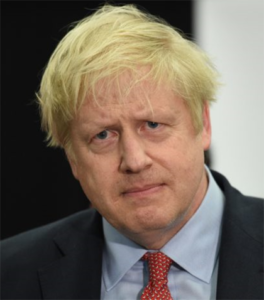Boris vs business lobby over Brexit migration policy
British Prime Minister Boris Johnson has fallen out with his nation’s business community over his plan to renege on a promise delay new restrictions on low-skilled workers entering Britain after Brexit.
The UK’s formative immigration white paper, published in 2018 when Theresa May was Prime Minister, had outlined a two-year “time-limited route for temporary short-term workers” to come to the UK in response to pressure from employers.
 But Mr Johnson has scheduled the issue for a cabinet discussion citing a “political desire to consider not having the transition”.
But Mr Johnson has scheduled the issue for a cabinet discussion citing a “political desire to consider not having the transition”.
Mr Johnson’s office has said no final decision had been taken but since becoming Prime Minister, Mr Johnson has not said whether he would support the transition period sought by business groups.
They fears that a new points-based immigration system would leave them with a skills shortage.
The business lobby wants the government to phase in the changes to the immigration rules over two years rather than suddenly implementing the new rules in January 2021.
Employers fear the immediate introduction of the government’s plans — which are broadly modelled on Australia’s points based immigration system — could lead to skills shortages in important industries.
Business groups are concerned any in implementation of the new immigration rules will see the supply of lower skilled workers – vitally important many parts of the British economy – will dry up.
“At a time of critical skills shortages and substantial change, these proposals would add further barriers to firms accessing the staff they need,” a spokesperson for the British Chambers of Commerce’ told UK media.
The main concern among employers is that the new system would make it much harder to employ EU workers in low-paid sectors such as food processing, construction and social care.
The minimum annual salary for non-EU skilled worker visas is currently set at £30,000, but 76 per cent of EU workers in the UK earn less than this.
Observers say those earning under £30,000 are not taking jobs, they are addressing a genuine shortage in workers. And the election the Conservative government said it would introduce a visa aimed at ensuring the National Health Service could recruit enough doctors and nurses.
But employers working in the health say the new system needs to take into account the need to hire support staff and social workers.
Parts of the UK service industry would also be hit hard by a sudden change in the immigration policy.
A quarter of the 3.2 million people that work in the hospitality industry are non-British and around 12 per cent are EU citizens.
There have also been calls for a seasonal agricultural workers scheme to bring in fruit and vegetable pickers for six months during the harvest season.












